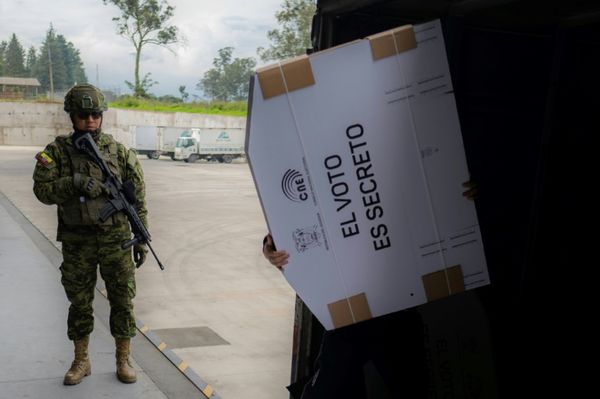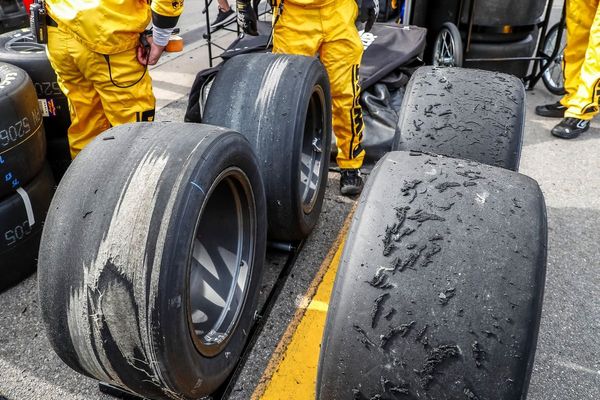
A star named after you! In the real world, it’s something your well-meaning but wacky friend gives you when they’re stuck for a birthday gift. There’s a lovely, warm moment between you as you both pretend they haven’t just spent £40 on a piece of A4 with an obviously legally unenforceable promise laser-printed on it. But … what if? What if those certificates were real? What if the star has evolved into a civilised planet? What if you are its rightful ruler?
Under the aegis of veteran TV hitmaker Russell T Davies, Doctor Who is good at finding the sort of simple fantasies that will make its younger viewers’ eyes widen. As it begins season 41 (season 15 if you restart the clock with the BBC’s 2005 revival; season two if you consider it to be a different show after Disney’s buy-in last year), the name on the star is Belinda Chandra, a Brit who was once given a present by a soon-forgotten teen boyfriend. Sixteen years later, robots with laser guns crash through the patio doors of her house, proclaiming her to be their queen before bundling her into a rocket. In pursuit is intergalactic nomad the Doctor (Ncuti Gatwa), who has sensed that Belinda’s real destiny is to be his companion on the impossible spaceship he calls the Tardis, roaming time and space.
While less confident writers might balk at throwing Doctor Who’s considerable budget at such a silly bedtime story of an idea, Davies is happy, usually, to stay true to the show’s roots as entertainment for all ages. So the season premiere, entitled The Robot Revolution, sets off in a pleasantly light mode, which is just as well because there are some chewier tasks to work through. The series showrunner is doomed to reside in a time-looped world where a science-fiction series keeps recasting the sidekick. Meanwhile, the writer is forced to, eternally, create exposition-filled season openers where the hero explains an unwieldy backstory – which can’t be scrapped, because it has decades of valuable intellectual property behind it – to their new pal.
It is a problem that Davies gets more adept at solving each time, and it’s done with some elegance in The Robot Revolution The series heralds the debut of Varada Sethu as the new Tardis passenger. Belinda is a nurse, which gives her a phlegmatic response to chaos: “There’s always a doctor standing back while all the nurses do the hard work,” she says, as her mentor stands silently strategising in the middle of a bustling trauma ward. A neat imaginative flourish involving alien X-ray technology deals with the Doctor having two hearts, and as for his lack of a human-style name, Belinda’s profession gives her an answer for that as well: “The Doctor? All right then, I’m called the Nurse!” Like several previous lead performers, Sethu has already appeared in the show as a different character, and this piece of IMDb trivia is turned into an intriguing plot device.
Sethu is just right for Belinda’s no-nonsense approach to unfamiliar experiences, underscored with an instinctive compassion for strangers. Her chemistry with the ever-engaging Gatwa looks good. So we’re ready to fly again, but there remains the issue of making the comeback work as an episode on its own terms. By the time you’ve outlined the basics of time travel (“Timey-wimey?” scoffs Belinda when the Doctor uses his favourite term for temporal anomalies. “Am I six?”), explored the quirks of the Doctor’s biology and marvelled at the surprising interior square footage of the Tardis, there isn’t much timey-wimey left for a coherent story-wory.
The Robot Revolution survives for a while, before exploding messily in the final few minutes. We’re used to episodes ending with a flurry of just-go-with-it contrivances, but this is a particularly screechy handbrake turn of a denouement, with the narrative’s twist playing on information that we’ve only just been given, so we don’t have any expectations to upend. There’s also the issue of Davies’s desire to insert political commentary into the show wherever possible. His politics are generally admirable and his message here – which suggests he climbed into a time machine during the writing process and foresaw the hype around Adolescence – is as righteous as ever. But the lesson is delivered in a way that recalls the words of comedian Matthew Holness’s spoof of a bad author, Garth Marenghi: “I know writers who use subtext, and they’re all cowards!” Sethu is obliged to announce the point Davies is making, because the action hasn’t had a chance to do it organically. What began as delightful whimsy ends on a confusing downer.
It will all be forgotten next time of course, when Belinda and the Doctor land in Miami in 1952. But Gatwa and Sethu’s partnership is off to a bumpy start.
Doctor Who: The Robot Revolution aired on BBC One and is available on iPlayer







